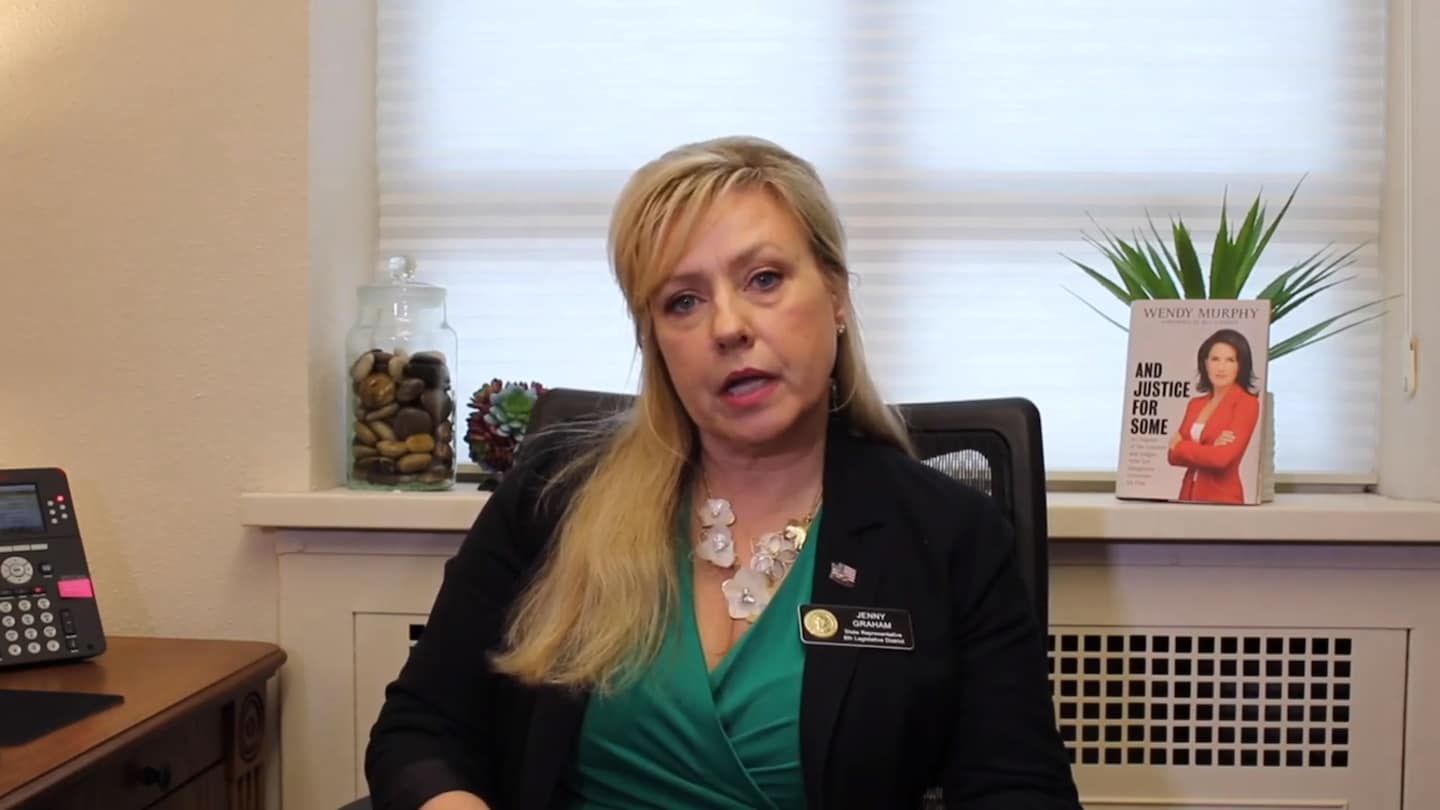A Washington lawmaker shared conspiracy theories. She threatened a reporter who wrote about it.

But Walters was unable to pick up in time. When he called the state representative back, she unleashed a barrage of hateful insults.
“You c———!” Graham said twice. “Don’t ever call me again.”
Before Walters could get some answers as to why Graham was upset, the line disconnected.
For days following the phone call, Graham took to Facebook, posting attacks against the reporter and calling his story false. On Monday, Walters wrote a follow-up piece in the Inlander, an alt-weekly newspaper in Spokane, fact-checking his earlier story and including the full recording of his interview with Graham, as well as the audio from a threatening voice mail she left him.
“What I was more concerned with was: Did we get anything wrong? Was there any sort of trust that we violated? Was there anything significantly unfair or inaccurate?” Walters said in an interview with The Washington Post.
Walters began reporting the story about Graham last month, when he noticed she had shared several articles from websites publishing false information and promoting theories also pushed by QAnon, a baseless right-wing conspiracy theory that Satan-worshiping pedophiles are plotting against President Trump and running a sex-trafficking ring.
Among the stories Graham shared were one falsely connecting vaccinations to autism on a website that promotes QAnon conspiracies, and another from a blog that includes a video claiming Democrats are “possessed by demons” and “hate humanity,” Walters reported.
Posts that Graham shared were twice flagged by Facebook as false, Walters reported. One was a video of a news conference from “America’s Frontline Doctors,” in which a doctor named Stella Immanuel falsely claimed masks didn’t work and made the unsubstantiated claim that hydroxychloroquine will cure the novel coronavirus.
Walters had spent almost 80 minutes interviewing Graham, and informed the state legislator that many of the stories she shared on Facebook were published on conspiracy theory websites, a fact that Walters said Graham told him she was unaware of at the time. Graham told Walters that she didn’t necessarily believe all these things but wanted her constituents to discuss them.
“Our article wasn’t making allegations that she was a conspiracy theorist,” Walters said.
Rather, the story was meant to show that local politicians in Washington state are promoting inaccurate articles on Facebook for their constituents to see.
“A lot of people don’t trust the general media, even local media,” Walters said. “If they see elected officials bashing media and promoting some of these other sites as a good alternative, that is something that can put people on a dangerous path.”
Walters was also working on a piece about Rob Chase, a former Spokane County treasurer running for state legislature, who told Walters he is intrigued by QAnon. Chase was endorsed by state Rep. Matt Shea (R), a far-right figure who made national headlines last December after a report alleged he intimidated and threatened political opponents and helped plan an armed occupation of a national park in Oregon in 2016. Shea is leaving his seat in the state legislature in November and recruited Chase to run.
After the story was published on Aug. 27, Graham called Walters enraged. She left a voice mail, which Walters only heard after his brief call with the representative.
“Daniel, you lying piece of s—,” she said. “You’ve done it. You have started it. Don’t you ever call me again. Do you understand? Don’t you ever — and you tell your buddies not to call me either. It’s on. If you think for one minute you’re going to pull this crap and you’re going to walk away from it, you’re nuts.”
Graham did not immediately respond to a request for comment from The Post late on Monday.
Walters and his editor tried calling Graham back a few times, asking what about his story was inaccurate. He also texted her, offering to talk off the record. But the representative did not respond.
“In one of her attacks on me she linked to another conspiracy site,” Walters said. “That, to me, suggested that the core of our story was very much true and it was something that was still happening and still concerning.”
On Thursday, Walters published his follow-up piece explaining the fallout from the article and detailing the basis for his August article. As of early Tuesday, Graham has not responded publicly to the piece.
Walters said he didn’t write the story to shame Graham for cursing him out or posting about him on Facebook, rather to set the record straight.
“If anyone says it’s a lie, I take it incredibly seriously,” Walters said. “All we have is trust in this profession.”


